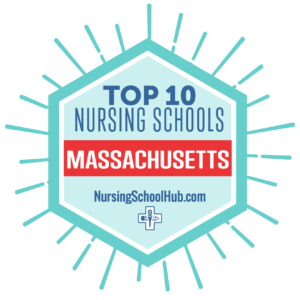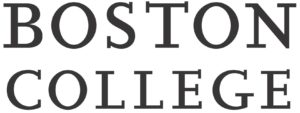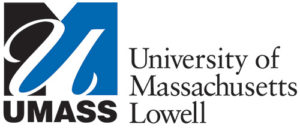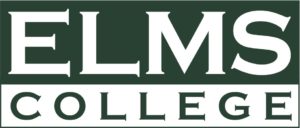
The best Massachusetts nursing schools have a variety of programs for new nurses and working nurses returning to school. Picking one of the many schools of nursing in Massachusetts can be tough as they’re a lot of great nursing schools to choose from. So, just how do you pick from the best nursing schools in Massachusetts? The first step is to take a look at the selection of schools of nursing in Massachusetts and the kind of education they offer. Are you interested in becoming a Massachusetts registered nurse (RN) or earning your bachelor of science in nursing (BSN)? Do you want to specialize in a specific area of healthcare such as pediatrics or surgery?
Answering these questions helps you decide which one of the accredited nursing schools in Massachusetts offers the kind of career education you’re seeking. If you’re planning on specializing in a specific area of healthcare, make sure that the school offers clinical rotations in healthcare facilities that provide training specific to your desires.
How We Ranked the Best Nursing Programs in Massachusetts
Featured Programs
For the Nursing School Hub ranking of the best nursing programs in Massachusetts, NSH editors focus on legitimate, accredited colleges and universities. We rank programs using data from IPEDS and Niche, including cost, graduate salary, and reputation.
1. Boston College

Boston College offers multiple Nursing degree programs that include bachelor’s, master’s, doctor of nursing, and PhD programs. The bachelor’s program is aimed at students who want to earn their Bachelor of Science in Nursing (BSN) degree and does not offer the option to become a registered nurse (RN) prior to completing the program. There’s an opportunity to spend a semester abroad for international study during their junior year, and seniors can participate in global clinical experiences. Students may also be able to take graduate-level electives during their junior and senior years.
Boston College is a private university in Chestnut Hill, Massachusetts, and is operated by the Jesuits. The school enrolls almost 15,000 students each academic year. Available degrees include bachelor’s, master’s, and doctorates. Alumni of Boston College have become politicians, members of Congress, chief executives, Hollywood actors, and more. The sports teams participate in the NCAA Division one ACC.
Format: Campus
2. University of Massachusetts Amherst

UMass Amherst’s Elaine Marieb College of Nursing offers degrees including bachelor’s, master’s of science, DNP, and PhD programs along with undergraduate and graduate certificates. Most of the nursing programs are campus only. Undergraduate degrees include a nursing major, accelerated BS in nursing, RN to BS online, and an undergraduate certificate for communicating more clearly with Spanish-speaking populations. Graduate degree programs include concentrations in clinical nurse leadership, nursing education, and nursing studies. A PhD. is available for students who wish to participate in nursing research, and students in all programs have the option to work in research labs at any point during their education.
UMass Amherst is the public flagship university of the University of Massachusetts. The school enrolls around 31,000 students each academic semester and offers associate, bachelor’s, master’s, and doctorate degrees. Many students from UMass Amherst have gone on to earn prestigious awards and hold high office. The school’s sports teams participate in the NCAA Division I FBS-Atlantic 10 conference.
Format: Campus
3. University of Massachusetts Lowell

UMass Lowell offers nursing degree programs that accommodate students with varying educational needs. It offers a bachelor of nursing, a fast-track BS to MS program for enrolled nursing students, a fast-track MS to DNP program for students enrolled in the MS program, and two different types of PhD. in Nursing programs. Students in the BSN program gain access to 250 clinical agencies, clinicals begin during the sophomore year, and the licensure exam pass rate for graduates is consistently above 95%. Most of the nursing faculty are working professionals who stay abreast of the current trends in nursing and teach best practices to nursing students.
The University of Massachusetts Lowell, or UMass Lowell, is a public research university and features a space-grant affiliation. The school has a Carnegie classification of R2 Doctoral Universities — high research activity. About 18,000 students enroll each academic year. The school offers over 120 bachelor’s degree majors, 43 master’s degrees, and 25 doctoral degree programs. The school’s sports teams participate in the NCAA Division I America East Conference.
Format: Online/Campus
4. Simmons University

Simmons University’s School of Nursing offers a traditional BSN program, accelerated second-degree program, an MSN, and doctoral education. Simmons University focuses on public health nursing and training family nurse practitioners to meet the growing demand for the specialty. Graduates perform above the national average on the NCLEX exam and FNP Certification Exams. A mentoring program is geared towards helping people of color succeed in their studies. Clinical trials are held in labs on-campus and in health care facilities that are located near the school.
Simmons University is a private women’s undergraduate university and a co-ed graduate school. The school is a member of the Colleges of the Fenway consortium. About 5,000 students are enrolled each academic semester in pursuit of degrees in areas that include Library and Information Science, Natural, Behavioral, and Health Sciences, Nursing, Business, Social Sciences, Policy and Practice, Media, Arts, and Humanities. The school’s sports teams participate in the NCAA Division III in the Great Northeast Athletic Conference, New England Women’s and Men’s Athletic Conference, and the Eastern College Athletic Conference.
Format: Campus
5. University of Massachusetts Boston

The nursing program at UMass Boston trains nurses to go beyond the call of nursing and become advocates for underserved populations and serve diverse communities. The program offers a bachelor’s, master’s, Doctor of Nursing Practice program, and a post-graduate APRN certificate program. Classes are offered on campus, online, and in hybrid formats. First-year nursing students can enter a program known as the CNHS First-Year Scholars to gain access to mentors, help with navigating the school, and workshops to help develop their career or further education.
UMass Boston, or the University of Massachusetts Boston, is the only public research university in Boston and is part of the UMass System. The school has a Carnegie classification of R2: Doctoral Universities — High research activity. Over 31,000 students enrolled at UMass Boston each academic semester in pursuit of degrees that include bachelor’s, master’s, and doctoral degrees, and certificates.
Format: Online/Campus
6. Massachusetts College of Pharmacy & Health Sciences

The School of Nursing at Massachusetts College of Pharmacy & Health Sciences features multiple options for students who are seeking various options for their careers as a nurse. The school offers programs that include RN to MSN, BSN, Doctor of Nursing Practice, Psychiatric Mental Health Nurse Practitioner, and graduate certificates in nursing. The program features the latest in simulation technologies and learning equipment, clinical rotations with Massachusetts General Hospital, and are designed in collaboration with Harvard-affiliated hospitals.
Massachusetts College of Pharmacy & Health Sciences (MCPHS University) is a private university located in Boston, Massachusetts, and features education in the health sciences. The school is the largest college of pharmacy in the U.S. and offers certificate programs, bachelor’s, master’s, and doctoral degrees, and continuing education for professionals across a broad spectrum of healthcare specialties.
Format: Online/Campus
7. University of Massachusetts Dartmouth

The Nursing program at UMass Dartmouth features on-campus and online nursing programs that accommodate a variety of students’ educational needs. Degree programs include bachelor’s, master’s, PhD, and a certificate of advanced graduate study. Classes are offered online and on-campus or in a hybrid format. Some of the degree programs include a BS in nursing, RN to BSN online, second degree accelerated BS in nursing, and a PhD in nursing. Around 95% of graduates pass the NCLEX exam, and the school’s nursing programs are among the top-rated in the U.S.
UMass Dartmouth or University of Massachusetts Dartmouth (UMassD) is a public research school with a space-grant affiliation and is part of the University of Massachusetts university system. The school has a Carnegie rating of R2: Doctoral Universities High research activity. The school enrolls about 8,500 students each academic year who are engaged in earning degrees that include bachelor’s, master’s, and doctoral degrees.
Format: Online/Campus
8. College of Our Lady of the Elms

The School of Nursing at Our Lady of the Elms is a comprehensive school that offers associate, bachelor’s, master’s degrees, and doctorates in nursing. Students who are looking to earn their BSN can enter into the baccalaureate, accelerated second-degree program, or RN-BSN degree completion program. Undergraduates have the opportunity to work in a field setting that helps underserved populations gain access to health care. The nursing program features state-of-the-art nursing skills and simulation labs, an emphasis on NCLEX preparation, and a 97% NCLEX pass rate on average.
The College of Our Lady of the Elms, or Elms College, is a private Catholic liberal arts college in Chicopee, Massachusetts, and is affiliated with the Sisters of St. Joseph. The school offers bachelor’s degree programs with 33 different concentrations. Around !,200 students enroll each academic semester. The school’s sports teams participate in the NCAA Division III.
Format: Online/Campus
9. Regis College

The nursing program at Regis College is a comprehensive and supportive degree program that has classes online and on campus. Students have multiple degree track options available to them that include a 24-month BS for non-nurse college graduates, a doctor of nursing practice, a traditional BS and MSN nursing program, RN-to-BSN, and an upward mobility track that’s RN to BSN to MSN. Regis College also offers nursing certificates for nurses who want to add to their qualifications and improve their career outlook. The National League for Nursing has recognized the Young School of Nursing at Regis College and is one of only 26 nursing programs in the U.S. to receive the recognition.
Regis College is a private Roman Catholic university in Weston, Massachusetts, and is run by the Sisters of St. Joseph. The school enrolls around 3,000 students each academic semester and offers associate, bachelor’s, master’s, and doctoral degree programs. The National League of Nursing has designated the Richard and Sheila Young School of Nursing as a Center of Excellence in Nursing Education. The school’s sports team participates in the NCAA Division III – GNAC.
Format: Online/Campus
10. Salem State University

Salem State University offers a nursing program that awards students with their RN, BSN or MSN depending on the program they participate in. Programs are available in both online and on-campus formats. Licensed practical nurses can enter into an LPN to BSN program and also become eligible to sit for the NCLEX-RN and earn their RN licensure while working towards their BSN. The undergraduate degree in Nursing is a four-year program for students who wish to enter the workforce with a BSN and earn their RN along the way. An accelerated second degree BSN offers students who got their first undergraduate degree in an entirely different field but want to become a nurse. Masters programs and a certificate are also available.
Salem State University is a public university and is part of the state university system. The school offers bachelor’s, master’s, post-master certificates, an MBA, and continuing education. Around 6,300 students enroll each academic year and attend classes offered in one of six schools that include Business, Arts and Sciences, Health and Human Services, Education, Continuing and Professional Studies, and Graduate Studies.
Format: Online/Campus
How Do I Choose a Nursing School in Massachusetts?
Accredited nursing schools all teach a similar curriculum in order to train nurses to accept healthcare and nursing standards. You’ll find that the classes offered by nursing schools in Massachusetts are very little from school to school. Therefore, you should choose a school that offers a curriculum that appeals to you, is conveniently located or has online classes, has at least a good reputation, ranking, or rating, and charges tuition that you find acceptable.
One aspect of nursing school in the era of COVID-19 is the fact that clinicals are sometimes done in a virtual setting. All the schools of nursing in Massachusetts handle the clinical portion of the nursing degree in a manner they feel is appropriate, but you need to decide if you’re comfortable doing clinicals online or in person. This is most likely to change as time passes, but it’s something a nursing student needs to consider when looking at schools of nursing in Massachusetts.
What is the Job Market for Nurses in Massachusetts?
The field of nursing is experiencing a shortage of qualified nurses, and the demands of COVID-19 have only served to accelerate the loss of qualified nurses. A study put out by the U.S. Department of Health and Human Services in 2017 estimated that there would be a surplus of nursing jobs in Massachusetts by 2030, but it was written long before the coronavirus reached the states. Prior to COVID-19, the demand for nurse jobs in Massachusetts was predicted to stay strong for at least a decade due to the aging Baby Boomer population. It was also predicted that there would be more demand for nurse practitioner jobs in Massachusetts to help make up for a shortage of qualified physicians. The arrival of COVID-19 and its yet-as-unknown long-term effects on the human body has changed the demand for nursing jobs in Massachusetts.
The coronavirus pandemic has accelerated the rate of nursing professionals leaving the role of nursing due to burnout. Nursing jobs in Massachusetts were already going unfilled, but now that number has increased rapidly. The demand for Massachusetts nursing jobs will most likely take a long time to level off. A student entering nursing school to earn their RN will find ample registered nursing jobs in Massachusetts to apply for. Those students who want to travel may find themselves in demand as travel nurse jobs in Massachusetts are also plentiful.
Another aspect of the coronavirus that affects the demand for nurse jobs in Massachusetts is the fact an estimated 10% of those who came down with COVID-19 will become known as COVID-19 long-haulers even if they had mild symptoms. A new cohort of people is likely to require long-term medical care to treat the permanent changes to their bodies. These long-haulers will also push the demand for nurses and Massachusetts nursing jobs will stay plentiful as employers seek qualified nurses to help care for patients.
How Much Do Nurses Make in Massachusetts?
The average nursing salary in Massachusetts is $96,250 per year according to the Bureau of Labor Statistics (BLS). While this amount represents the median salary for Massachusetts nursing salaries, it’s influenced by factors that include higher salaries in large metro areas like Boston and increased demand for nurses during the COVID-19 pandemic. Average nursing salaries in Massachusetts are anywhere between $61,660 and $146,480. A Massachusetts nursing salary is about 17% higher than the average nursing salary across the U.S.
Nursing salaries in Massachusetts are largely influenced by location and experience. A nurse who lives in a large metro area and has years of experience and/or multiple nursing degrees can expect to earn more than the average Massachusetts nursing salary, but can also expect to pay a larger portion of their salary towards their costs of living. However, an experienced nurse is more likely to earn at the higher end of the range of registered nurse salary in Massachusetts even if they live in a less-populated area as experience is desired by employers. Recently graduated nurses who are starting their career can expect their average nursing salary in Massachusetts to be representative of their newly acquired nursing status, but income increases as a nurse gains experience.
Related: